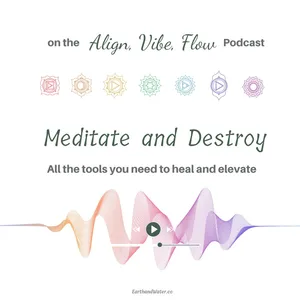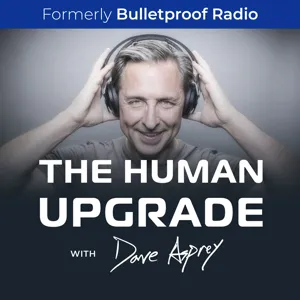Podcast Summary
Financial rewards and income opportunities: Apple Card offers daily cash rewards and Airbnb lets you earn income by renting out your own home. Vivek's story emphasizes the importance of addressing feelings of loneliness.
Apple Card offers daily cash rewards with varying percentages based on where you shop, while Airbnb provides an opportunity to earn income by renting out your own home when you're traveling. Another significant takeaway is the discussion about feelings of loneliness and the importance of addressing it, as well as the role of Express Employment Professionals in helping people find jobs. In summary, Apple Card and Airbnb offer financial benefits, while the story of Vivek highlights the importance of addressing feelings of loneliness and the potential barriers that prevent people from seeking help or support.
The Prevalence and Impact of Loneliness: Loneliness, a public health priority, affects many and is linked to numerous health issues, emphasizing the importance of social connections for well-being.
Loneliness is more prevalent and impactful than we realize, despite our minds often trying to convince us otherwise. Vice Admiral Vivek H. Murthy, a guest on The Happiness Lab, emphasized this issue as a public health priority. Contrary to common beliefs, loneliness affects a wide range of people, and it's linked to numerous health issues, including heart disease, dementia, depression, anxiety, and sleep disturbances. Despite the significance of social connection for our well-being, there's no clear-cut guidance on how much or what type of social interaction we should aim for daily. Ignoring this need for connection could have detrimental effects on our health and happiness. To combat feelings of emotional isolation, it's crucial to actively seek out opportunities for meaningful social connections. Understanding the science of the mind can help us recognize when our minds are deceiving us and guide us towards prioritizing social connections for a happier, healthier life.
The Importance of Social Connections for Longevity and Health: People with strong social bonds are 50% less likely to die than those with fewer connections, equivalent to not smoking 15 cigarettes a day and greater than the impact of obesity or sedentary living. Loneliness is common but stigmatized, prioritize and make time for meaningful social connections.
Social connection is a crucial factor in longevity and overall health. A study by Julianne Holt-Lunstad at Brigham Young University found that people with strong social bonds were 50% less likely to die over a given period of time than those with fewer social connections. This is equivalent to the mortality impact of smoking 15 cigarettes a day and greater than the mortality impact of obesity or sedentary living. Furthermore, loneliness is exceedingly common, with nearly a fifth of adults in the United States admitting to struggling with it. Despite this, there is a stigma around loneliness that keeps people from admitting their struggles. It's important to prioritize and make time for meaningful social connections, as the cost of neglecting them can be significant. Even with busy schedules and demanding jobs, it's essential to make an effort to maintain and strengthen relationships with loved ones.
Three Types of Loneliness: Intimate, Relational, and Collective: To combat loneliness, focus on building and nurturing various relationships, including deep friendships, casual acquaintances, and a sense of belonging to a community.
Just like maintaining a balanced diet and regular exercise, having a variety of social interactions is essential for our overall health and well-being. However, it's not just about the number of people we interact with or the number of parties we attend. According to Vivek Murthy, former Surgeon General of the United States Army and author of "Together: The Healing Power of Human Connection in a Sometimes Lonely World," there are three types of loneliness: intimate, relational, and collective. Intimate loneliness is the lack of a close confidant, relational loneliness is the absence of friendships, and collective loneliness is the feeling of not belonging to a community. To truly feel deeply connected, we need all three types of social connections. So, to combat loneliness, it's important to focus on building and nurturing these various relationships, whether it be through deep, intimate friendships, casual acquaintances, or a sense of belonging to a community.
Fighting Collective Loneliness through Social Connections: Research shows that social connections made through religious activities boost happiness, not religious beliefs. To combat collective loneliness, we should create new structures of relationship and community.
Collective connection and belonging are essential for individual happiness and well-being, yet many people today feel a growing sense of collective loneliness due to decreasing membership in social groups and increasing virtual interactions. As Robert Putnam's book "Bowling Alone" highlighted, this trend towards isolation has been exacerbated by the digital age. However, Casper Turkile, a Harvard Divinity School Fellow, argues that we can learn from religious organizations' success in fostering social support and sense of belonging. Research shows that this happiness boost doesn't stem from religious beliefs but rather from the social connections made through religious activities. Therefore, Casper advocates for creating new structures of relationship and community to combat collective loneliness. Whether it's through religious organizations, social groups, or innovative solutions, finding ways to connect with others and build a sense of belonging is crucial for personal happiness and overall well-being.
Discovering Community in Secular Spaces: Gyms and learning environments foster community through shared experiences and social interactions, motivating individuals to push beyond their limits. Joining classes or groups centered around shared interests or learning experiences can also lead to meaningful relationships.
Community and connection are essential for personal growth and well-being, and they can be found in various secular spaces, such as gyms and communal learning environments. Casper, a divinity school fellow, discovered that gyms unintentionally foster community through shared experiences and social interactions, creating a powerful motivator for individuals to push beyond their limits. Alternatively, joining a class or group centered around a shared interest or learning experience can also lead to meaningful relationships. Casper's experience with a Harry Potter reading group further illustrates the power of shared texts and values in bringing people together and building a sense of community. Overall, the search for connection and belonging is a universal human need, and it can be met in various ways beyond religious traditions.
Building community through shared interests and experiences: Engage in hobbies outside the home, attend events, or volunteer to build connections. Sharing resources or hosting guests can deepen relationships and lead to community growth.
Creating community and fighting collective loneliness can be achieved through shared interests and experiences. Casper ter Kuyle, the host of the Harry Potter and the Sacred Text podcast, shared how his small community grew into a global network of fans, leading to real-life gatherings and mutual aid funds during the pandemic. To build communities, try engaging with hobbies outside of your living room, such as attending a basketball game or volunteering. Even small gatherings with one or two people can lead to organic growth. Additionally, to form deeper relationships, consider becoming an Airbnb host or seeking help from a local employment professional like Express Employment Professionals. By sharing your home or resources, you can create opportunities for connection and potentially earn extra income. Remember, building community and combating loneliness starts with small steps and inviting others to join in shared experiences.
The Role of Friendships in Mental Wellness: Friendships contribute to mental wellness, but they require effort and intentionality to build and maintain in adulthood.
Both physical health and mental wellness contribute significantly to happiness, and places like San Diego, with its sunny climate, beautiful scenery, and welcoming community, can help improve mental wellness by providing opportunities for rest, recharge, and making new connections. However, building and maintaining friendships, especially in adulthood, can be challenging. Marissa Franco, a psychologist and expert on the science of friendship, discovered this firsthand when she moved to a new city and struggled to make friends. She emphasized that loneliness is not just about being around people but feeling comfortable, authentic, and seen around them. Friendships bring us joy and are important for our overall well-being, but they require effort and intentionality. Research shows that our friendship networks are shrinking, and every 7 years, we lose about half our friends. To combat this, Marissa encourages taking a scientific approach to friendship, being intentional about meeting new people, and recognizing that friendships don't just happen organically in adulthood. Instead, they require effort and investment.
Believing friendship is based on effort: Believing friendship takes effort and intentionally overcoming anxiety and the liking gap can lead to fewer lonely years.
Making friends requires effort and intentionality, rather than relying on luck. People who believe friendship is based on effort are less likely to be lonely years later. However, many of us struggle with making new friends due to time constraints and anxiety. The liking gap, a cognitive bias, can make us underestimate how much others like us. To overcome this, assuming people like us is a helpful mindset shift. Additionally, we must accept the discomfort of engaging with new people and overcome both overt and covert avoidance. Research shows that when people with social anxiety stop using safety behaviors, they become more open and engaging, making rejection less likely and increasing likability.
Overcoming relational loneliness through intentional actions: Recognize shared anxieties, initiate contact, and share vulnerability to deepen connections and overcome relational loneliness
Overcoming relational loneliness involves recognizing that others share similar anxieties and taking intentional steps to connect. This can begin with simple acts like introducing yourself to neighbors or volunteering vulnerability to deepen friendships. Contrary to popular belief, showing vulnerability can make us more attractive and authentic to others, fostering deeper connections. The courage to initiate contact and share our inner selves is essential in the fight against loneliness. Marissa, a friendship expert, has seen firsthand the power of intentional actions in building meaningful relationships.
Making others feel loved and valued is key to building friendships: Research shows that prioritizing love and value for friends builds strong connections, improving health and happiness.
Building meaningful friendships is not about being special or extraordinary, but about making others feel loved and valued. According to research, many people struggle with feeling connected and lonely, despite being surrounded by people. However, finding friends doesn't require luck or a perfect personality, but rather an understanding of the mind's lies and a willingness to put in effort. By prioritizing treating friends with love and making them feel valued, we can begin building the foundations of nourishing relationships. Whether they're casual or intimate, the benefits of having strong connections for our health and happiness are significant. So, if you're feeling lonely or disconnected, remember that initiating friendships is a skill that can be learned and practiced.






